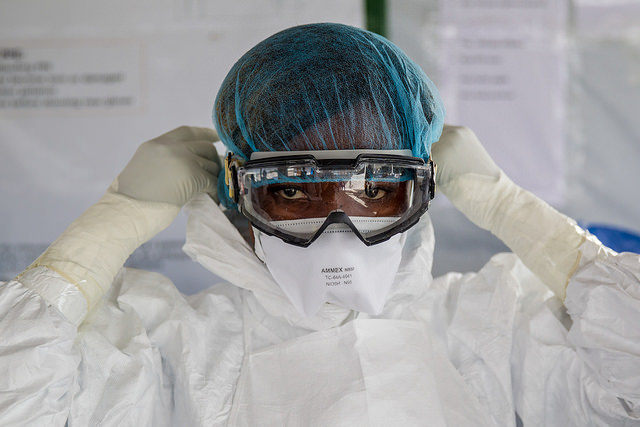This paper is an assessment of a phase II, randomized controlled trial of an Ebola vaccine undertaken in Liberia during the 2014-15 West African outbreak. Due to the complex and challenging circumstances in Liberia at the time - not only the outbreak, but the recent civil war and limited healthcare infrastructure - much of the conventional wisdom on vaccine trials was incorrect or inappropriate for the situation.

Image: UNMEER/Martine Perret
The challenges faced by the research teams meant they were constantly reassessing their approach in very short time frames. The trial ultimately went ahead successfully, opening in just 3 months, compared to the usual 1-3 years for a standard randomized clinical trial.
The authors discuss the extra levels of creativity and adaptability required of them when running this trial. For example, they had predicted that it would be challenging to accrue enough participants, due to misinformation about Ebola and healthcare workers, and difficulties with reaching out to certain communities. However, by placing a strong focus on social mobilisation from the start, the researchers were able to resolve some of these issues and quickly recruit the necessary number of participants. Other areas of the research design and conduct which required a reconsidered approach to that of a more conventional trial included:
-
local regulatory oversight
-
Participant compensation
-
Informed consent
-
Randomization and data collection
The authors argue that while the circumstances of this trial may never be repeated exactly, the learnings they gained from moving away from conventional wisdom and adapting to the conditions could be applied in many other therapeutic trial scenarios.
Read the full paper here (online) or here (PDF download) for further details of each learning example.

This work is licensed under a Creative Commons Attribution 4.0 International License.

Please Sign in (or Register) to view further.